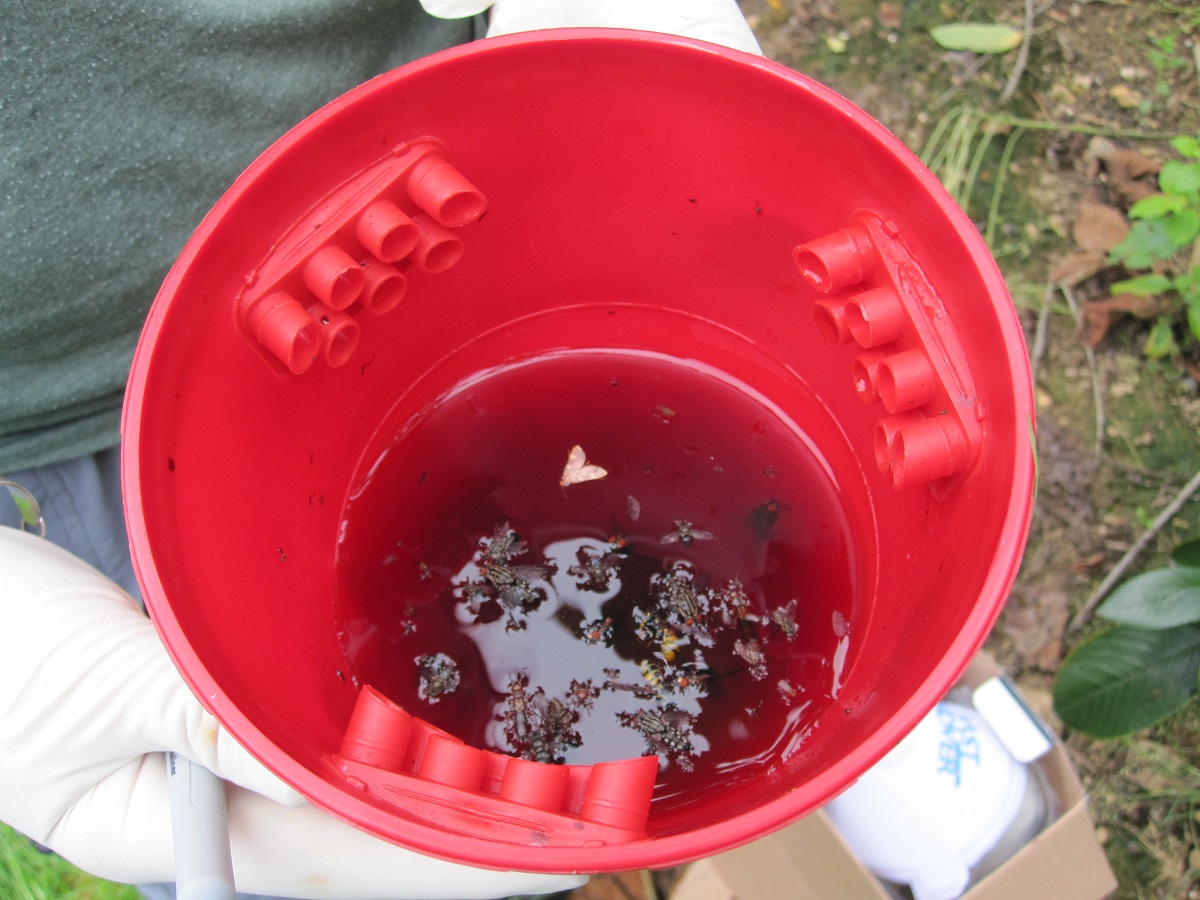
Spotted wing drosophila (SWD) is a fruit fly that lays its eggs in ripening fruit. The larvae cause severe fruit damage and increases in production costs. This invasive pest was first detected in the UK in 2012 by NIAB EMR, a horticultural research organisation based in East Malling, Kent. Numbers have increased year-on-year and SWD has become the main pest of concern for UK growers of a wide range of horticultural crops, particularly strawberries, raspberries and cherries.
Initially the only method of controlling SWD involved broad-spectrum insecticides, including spinosad and chlorpyrifos, which are designed to kill a wide range of organisms, without targeting a specific species. However, such insecticides can disrupt the integrated pest management (IPM) programmes used by growers against other pests and diseases which are based on more biological, environmentally friendly approaches.
NRI scientists of the Chemical Ecology Group led by Dr Daniel Bray have been involved in several projects in collaboration with NIAB EMR to develop better methods for control of SWD that are compatible with growers’ IPM programmes. In projects funded by the Agriculture and Horticulture Development Board (AHDB), NRI has developed and supplied lures for traps used in a National Monitoring Programme to follow spread of the pest in the UK. Repellents for SWD have been discovered and work by NRI/NIAB EMR PhD student Christina Conroy has demonstrated that at least two of these can significantly reduce the numbers of SWD eggs laid in strawberry crops. In work funded by Innovate UK in collaboration with specialist crop-protection firm, Russell IPM, a new lure for SWD adult flies has been produced and marketed. Progress has been made on developing a device that attracts SWD flies and infects them with a fungus that specifically kills flies. The infected flies are released to infect other SWD flies before dying. A third project, funded by the Biotechnology and Biological Sciences Research Council (BBSRC) in collaboration with Berry Gardens, a major supplier of strawberries to the UK supermarkets, aims to discover why SWD doesn’t lay eggs in fruit infested with other species of Drosophila. The NRI scientists are working to identify chemical signals which may be responsible for this deterrent effect. If successful, these could be applied to a crop to reduce damage caused by SWD.
SWD has become established on horticultural crops throughout the UK as well as in Europe, North and South America and even now in Africa, and this research is helping growers to reduce the damage caused by this pest. The approaches being developed are sustainable and compatible with IPM programmes on other pests and diseases, and will help growers reduce applications of traditional chemical pesticides. This in turn will help to reduce the risks to pollinators and other beneficial insects essential for maintaining our food supply, and to the wider ecosystem.

